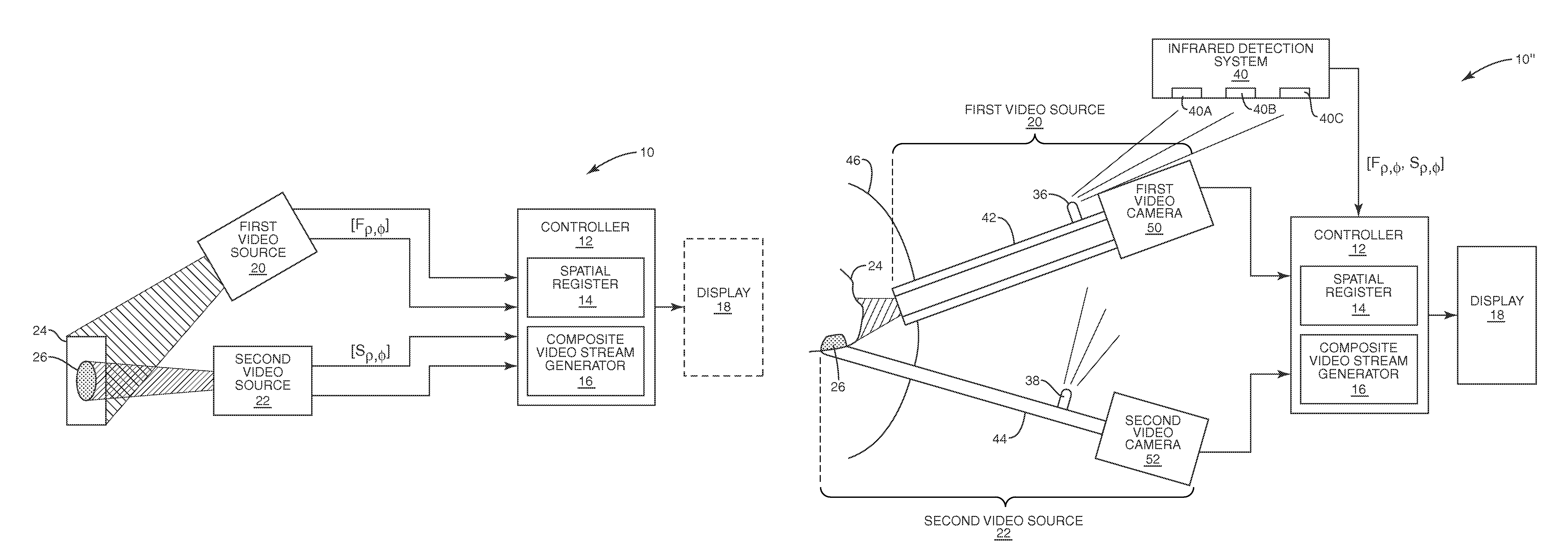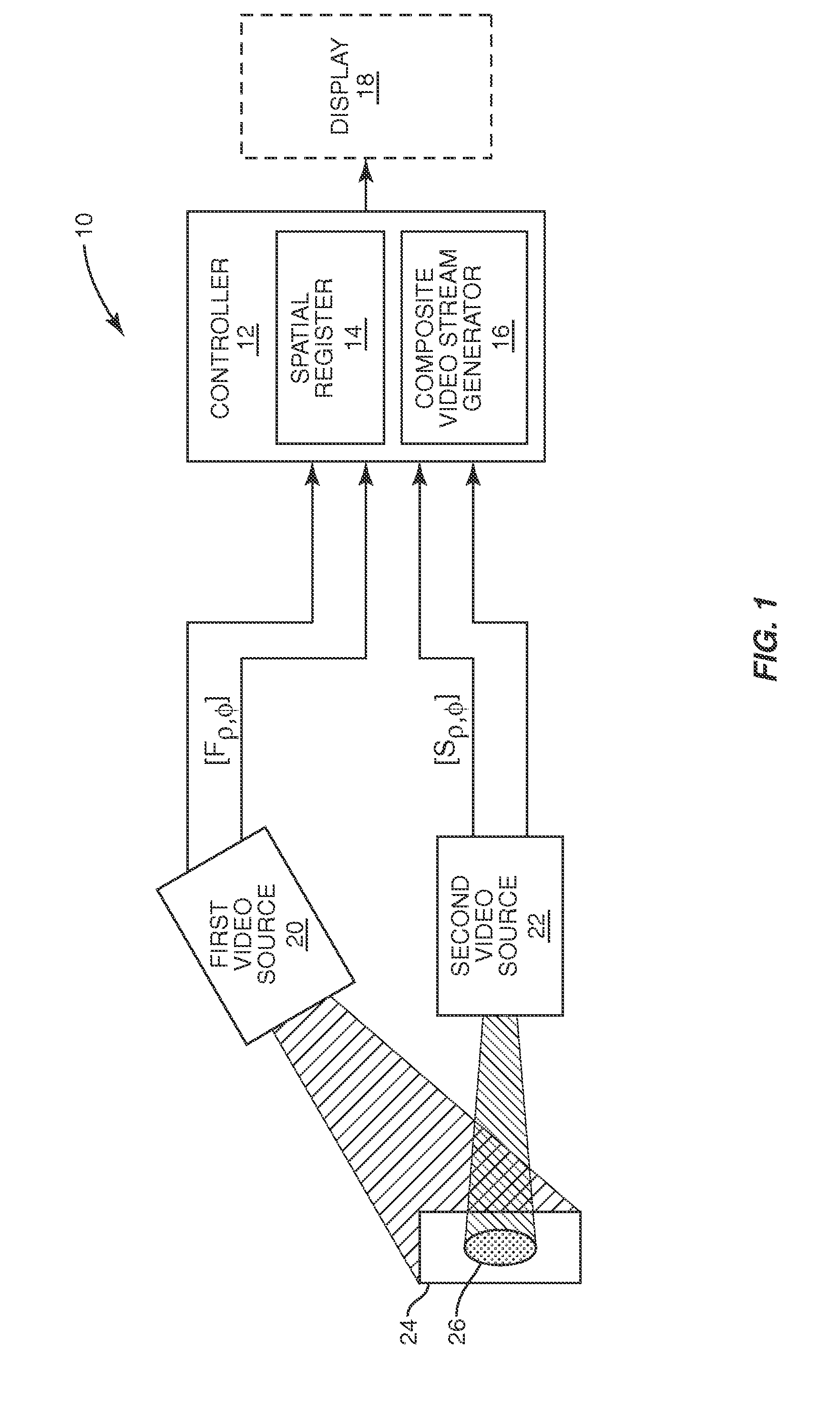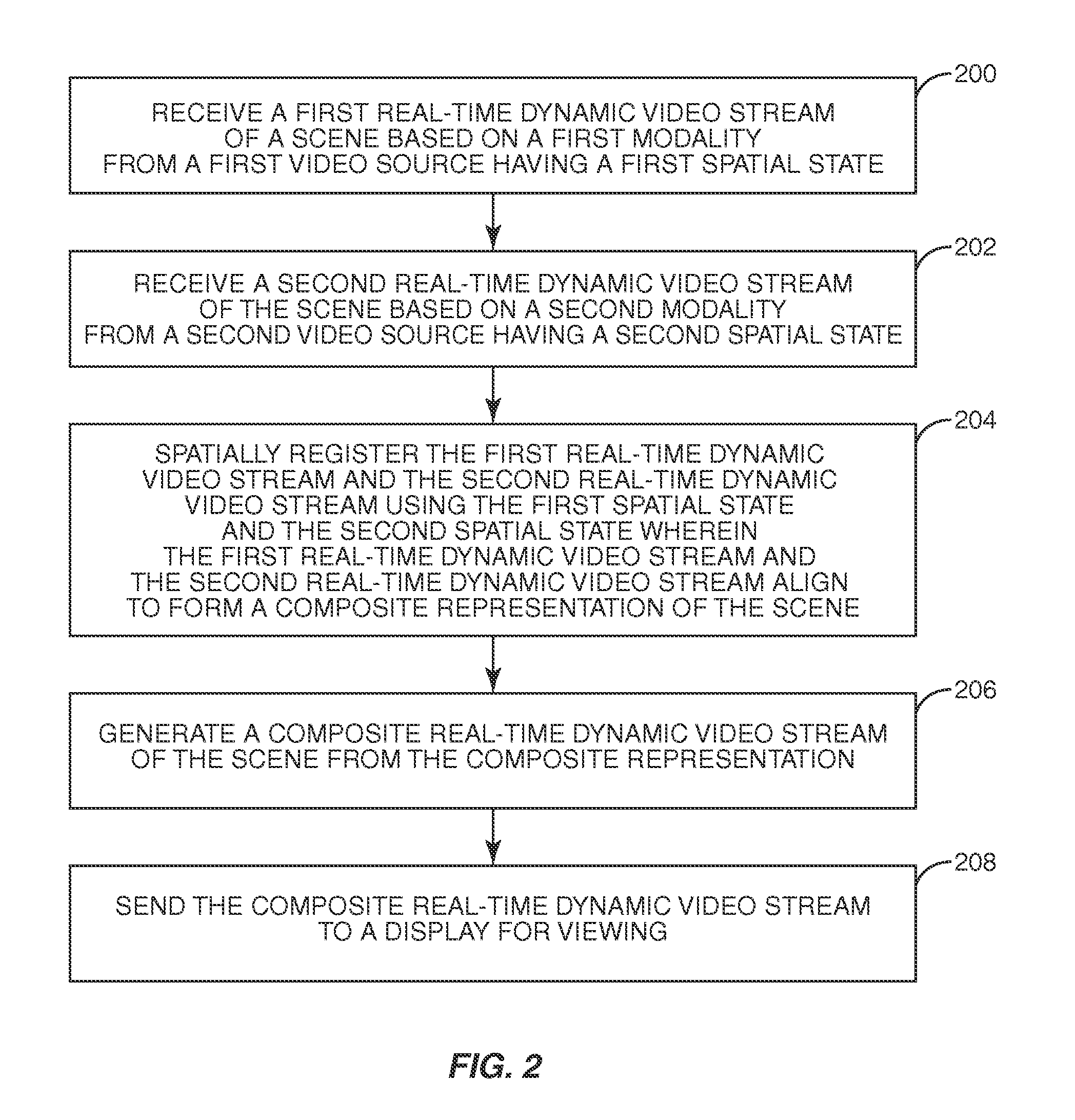System and method of providing real-time dynamic imagery of a medical procedure site using multiple modalities
a technology of real-time dynamic imagery and medical procedure, applied in the field of system and method of providing real-time dynamic imagery of medical procedure site using multiple modalities, can solve the problems of spatial coordination problem, difficult to perform surgical procedures using mis, and give rise, so as to achieve effective implementation of medical procedures, without undue latency
- Summary
- Abstract
- Description
- Claims
- Application Information
AI Technical Summary
Benefits of technology
Problems solved by technology
Method used
Image
Examples
Embodiment Construction
[0023]The embodiments set forth below represent the necessary information to enable those skilled in the art to practice the invention and illustrate the best mode of practicing the invention. Upon reading the following description in light of the accompanying drawing figures, those skilled in the art will understand the concepts of the invention and will recognize applications of these concepts not particularly addressed herein. It should be understood that these concepts and applications fall within the scope of the disclosure and the accompanying claims.
[0024]The present invention is directed to a system and method of providing composite real-time, dynamic imagery of a medical procedure site from multiple modalities which continuously and immediately depicts the current state and condition of the medical procedure site synchronously with respect to each modality and without undue latency. The composite real-time dynamic imagery may be provided by spatially registering multiple re...
PUM
 Login to View More
Login to View More Abstract
Description
Claims
Application Information
 Login to View More
Login to View More - R&D
- Intellectual Property
- Life Sciences
- Materials
- Tech Scout
- Unparalleled Data Quality
- Higher Quality Content
- 60% Fewer Hallucinations
Browse by: Latest US Patents, China's latest patents, Technical Efficacy Thesaurus, Application Domain, Technology Topic, Popular Technical Reports.
© 2025 PatSnap. All rights reserved.Legal|Privacy policy|Modern Slavery Act Transparency Statement|Sitemap|About US| Contact US: help@patsnap.com



